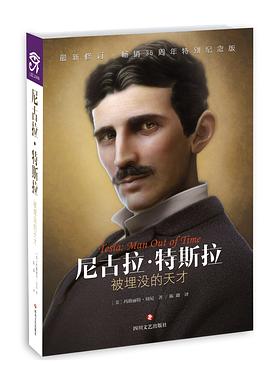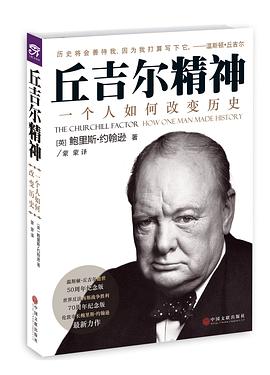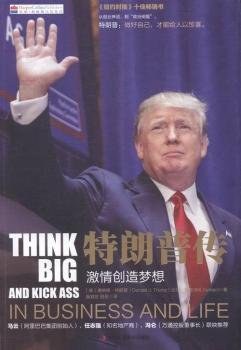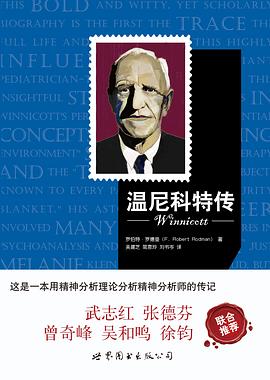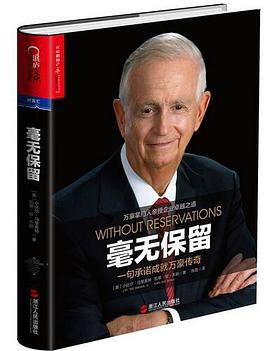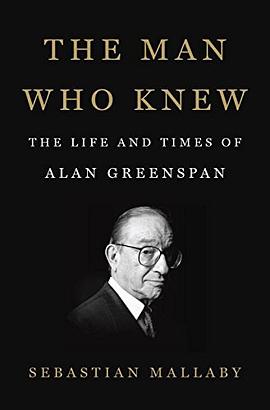

具体描述
Sebastian Mallaby is the Paul Volcker Senior Fellow in International Economics at the Council on Foreign Relations and a Washington Post columnist. He spent thirteen years on The Economist magazine, covering international finance in London and serving as the bureau chief in southern Africa, Japan, and Washington. He spent eight years on the editorial board of The Washington Post, focusing on globalization and political economy. His previous books are The World's Banker (2004), which was named as an Editor's Choice by The New York Times, and After Apartheid (1992), which was a New York Times Notable Book.
Sebastian Mallaby's magisterial biography of Alan Greenspan, the product of over five years of research based on untrammeled access to his subject and his closest professional and personal intimates, brings into vivid focus the mysterious point where the government and the economy meet. To understand Greenspan's story is to see the economic and political landscape of the last 30 years--and the presidency from Reagan to George W. Bush--in a whole new light. As the most influential economic statesman of his age, Greenspan spent a lifetime grappling with a momentous shift: the transformation of finance from the fixed and regulated system of the post-war era to the free-for-all of the past quarter century. The story of Greenspan is also the story of the making of modern finance, for good and for ill.
Greenspan's life is a quintessential American success story: raised by a single mother in the Jewish émigré community of Washington Heights, he was a math prodigy who found a niche as a stats-crunching consultant. A master at explaining the economic weather to captains of industry, he translated that skill into advising Richard Nixon in his 1968 campaign. This led to a perch on the White House Council of Economic Advisers, and then to a dazzling array of business and government roles, from which the path to the Fed was relatively clear. A fire-breathing libertarian and disciple of Ayn Rand in his youth who once called the Fed's creation a historic mistake, Mallaby shows how Greenspan reinvented himself as a pragmatist once in power. In his analysis, and in his core mission of keeping inflation in check, he was a maestro indeed, and hailed as such. At his retirement in 2006, he was lauded as the age's necessary man, the veritable God in the machine, the global economy's avatar. His memoirs sold for record sums to publishers around the world.
But then came 2008. Mallaby's story lands with both feet on the great crash which did so much to damage Alan Greenspan's reputation. Mallaby argues that the conventional wisdom is off base: Greenspan wasn't a naïve ideologue who believed greater regulation was unnecessary. He had pressed for greater regulation of some key areas of finance over the years, and had gotten nowhere. To argue that he didn't know the risks in irrational markets is to miss the point. He knew more than almost anyone; the question is why he didn't act, and whether anyone else could or would have. A close reading of Greenspan's life provides fascinating answers to these questions, answers whose lessons we would do well to heed. Because perhaps Mallaby's greatest lesson is that economic statesmanship, like political statesmanship, is the art of the possible. The Man Who Knew is a searching reckoning with what exactly comprised the art, and the possible, in the career of Alan Greenspan.
用户评价
##喜欢作者(1)对金融知识的了解并以普通人能理解的人话解释清楚;(2)对金融界和金融历史的演变简单清晰;(3)客观评价格老,赶脚态度还是比较中立滴;折磨厚的英文书,文笔好,读起来(我是听书滴)一点也不难受,很舒服。作者功力腻害。The Man Who Knew turns out NOT fully knew. 格老做的已经不错了。
评分##读了大半年终于看完了。格林斯潘从尼克松政府开始活跃在美国财政金融界,美联储连任5次,影响力从80年代跨越到千玺年代,在金融市场呼风唤雨,说他是美国最有权利的男人也不为过。这本书最有益的视角是可以读到格林斯潘领导下的美联储在做每一个利率调控决策的背景及触发因素。借这些历史的经验,或许可以一探当下。后面好几大章肯定还要重复阅读的。
评分##Greenspan is the man who knew, but he is not the man who knew everything. 最近看纽约客对昂山素季的报道也是这个感觉,最好不要把自己的理想主义投射到政治人物身上,一失望又大惊小怪,墙倒众人推。
评分 评分 评分 评分 评分 评分##这是关于格老的传记,细数了他成长过程的重要经历,包括他的那些女朋友们,以及期间美国经济和货币政策的波澜起伏。从中可以看到格老成为最盛名卓著的央行行长绝非偶然,除了他对货币金融学的深刻理解,他与政界人物以及媒体的良好的关系,都是其他美联储主席所不具备的。当然,人非完人,在他最辉煌的时候,在美国房地产成为经济引擎,股市节节走高的时候,他也忽视了潜在的风险。 很优秀的传记,把格林斯潘思想脉络和转变的关键点,以及美国重大经济金融政策出台过程和转折点描述的很清楚。看的过程中有一些感受。 1、时势造英雄,个人可以把握战术,但是无法决定基本面。所以一命二运三风水是深刻的。 2、之前成功的经验,往往是新时代失败的根源。但是人...
相关图书
本站所有内容均为互联网搜索引擎提供的公开搜索信息,本站不存储任何数据与内容,任何内容与数据均与本站无关,如有需要请联系相关搜索引擎包括但不限于百度,google,bing,sogou 等
© 2025 book.tinynews.org All Rights Reserved. 静思书屋 版权所有









